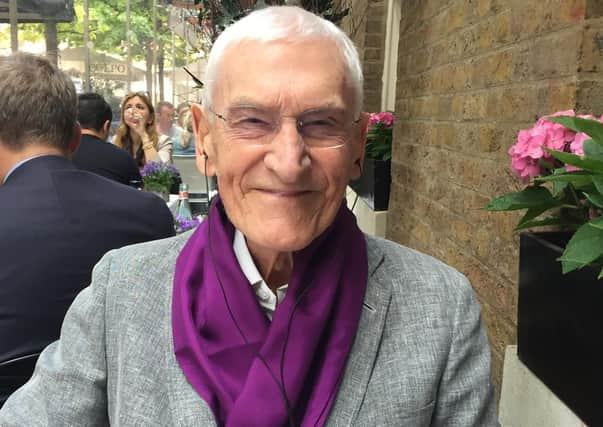Obituary: Tony Thornton, businessman and arts patron


Tony Thornton, who has died at 91, was chairman and managing director of the family’s chocolate firm in Sheffield for many years, and also principal and founder of the city’s Mayfield Valley Arts Trust, in which capacity he was awarded an MBE for services to music in Yorkshire.
He was the eldest son of Norman William Thornton, who had founded Thorntons confectionery in 1911, selling homemade sweets from a shop at 159 Norfolk Street. Newly available antibiotics rescued him from a childhood bout of pneumonia, and he went on to join his father and uncle at the company in 1950, after his National Service.
Advertisement
Hide AdAdvertisement
Hide AdHe travelled daily from Sheffield to an almost-derelict former Rolls-Royce warehouse in Belper, Derbyshire, which had been purchased when Thorntons outgrew its original factory on Archer Road. Responsible for developing the boiled sweets department, he spent many winter nights sleeping on the floor, and sustained a lifelong back injury lifting pans of boiling sugar.
In 1954, he was sent to Derby Station in his pink two-seater sports car to collect Walter Willen, a young Swiss chocolatier who had been persuaded to join the company. Despite not speaking each other’s language, they formed a long and fruitful friendship, and Willen was credited with creating the Continental chocolates with which Thorntons made its name.
Tony soon took over his father’s responsibility for the retail and marketing side of the business, and became an early pioneer in standardising window displays across what was a rapidly growing chain of shops. He was known for animated displays which used concealed motors and magnets to move giant chocolate rabbits, Easter eggs and Father Christmases to catch the attention of the passing public.
He also led the company’s tentative steps into television advertising when ITV was in its infancy.
Advertisement
Hide AdAdvertisement
Hide AdHe became chairman of Thorntons in the 1970s and remained focused upon retail development. By the time he retired from the company in 1984, it had more than 150 shops and 70 franchise outlets.
Following his retirement, he pursued his love of classical music and his lifelong ambition to help develop and nurture the arts in Yorkshire. He became involved with Sheffield Theatres Trust and its musicians, and took on a number of high-profile positions within Sheffield Arts, most notably as chairman of Sheffield Theatres, where he helped transform the fortunes of the Crucible.
In acknowledgement of his support for the arts in the city, he was awarded an honorary master’s degree by Sheffield University in 1986, the same year his three sons also graduated.
In 1987 he set up Mayfield Valley Arts Trust to support talented young musicians and ensembles who might otherwise struggle to get the backing they needed to fulfil their potential. The Trust widened its work into supporting music in educational settings, and helped in the expansion of several other charitable bodies, including the National Centre for Early Music, Wigmore Hall and York Early Music Foundation.
Advertisement
Hide AdAdvertisement
Hide AdA keen sailor and golfer, he maintained a collection of vivid yellow boats and was a Friend of the Royal Academy, National Gallery and The Tate.
He is survived by his sons, James, Mark, Simon and five grandchildren.
Comment Guidelines
National World encourages reader discussion on our stories. User feedback, insights and back-and-forth exchanges add a rich layer of context to reporting. Please review our Community Guidelines before commenting.